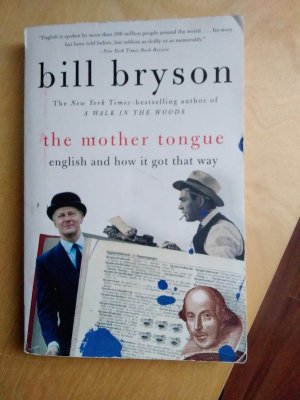Mizmo
Well-known Member
- Location
- Ontario, Canada
some described here...
| An Ode of English Plurals We’ll begin with a box, and the plural is boxes, But the plural of ox becomes oxen, not oxes. One fowl is a goose, but two are called geese, Yet the plural of moose should never be meese. You may find a lone mouse or a nest full of mice, Yet the plural of house is houses, not hice. If the plural of man is always called men, Why shouldn’t the plural of pan be called pen? If I speak of my foot and show you my feet, And I give you a boot, would a pair be called beet? If one is a tooth and a whole set are teeth, Why shouldn't the plural of booth be called beeth? Then one may be that, and three would be those, Yet hat in the plural would never be hose, And the plural of cat is cats, not cose. We speak of a brother and also of brethren, But though we say mother, we never say methren. Then the masculine pronouns are he, his and him, But imagine the feminine: she, shis and shim! Let’s face it, English is a crazy language. There is no egg in eggplant nor ham in hamburger; Neither apple nor pine in pineapple. English muffins weren’t invented in England. We take English for granted, but if we explore its paradoxes, We find that quicksand can work slowly, boxing rings are square, And a guinea pig is neither from Guinea nor is it a pig. And why is it that writers write but fingers don’t fing, Grocers don’t groce and hammers don’t ham? Doesn’t it seem crazy that you can make amends but not one amend. If you have a bunch of odds and ends and Get rid of all but one of them, what do you call it? If teachers taught, why didn’t preachers praught? If a vegetarian eats vegetables, what does a humanitarian eat? In what other language do people recite at a play and play at a recital? We ship by truck but send cargo by ship. We have noses that run and feet that smell. We park in a driveway and drive in a parkway. And how can a slim chance and a fat chance be the same, While a wise man and a wise guy are opposites? You have to marvel at the unique lunacy of a language In which your house can burn up as it burns down, In which you fill in a form by filling it out, and In which an alarm goes off by going on. And in closing, if Father is Pop, how come Mother’s not Mop? |
Last edited:


